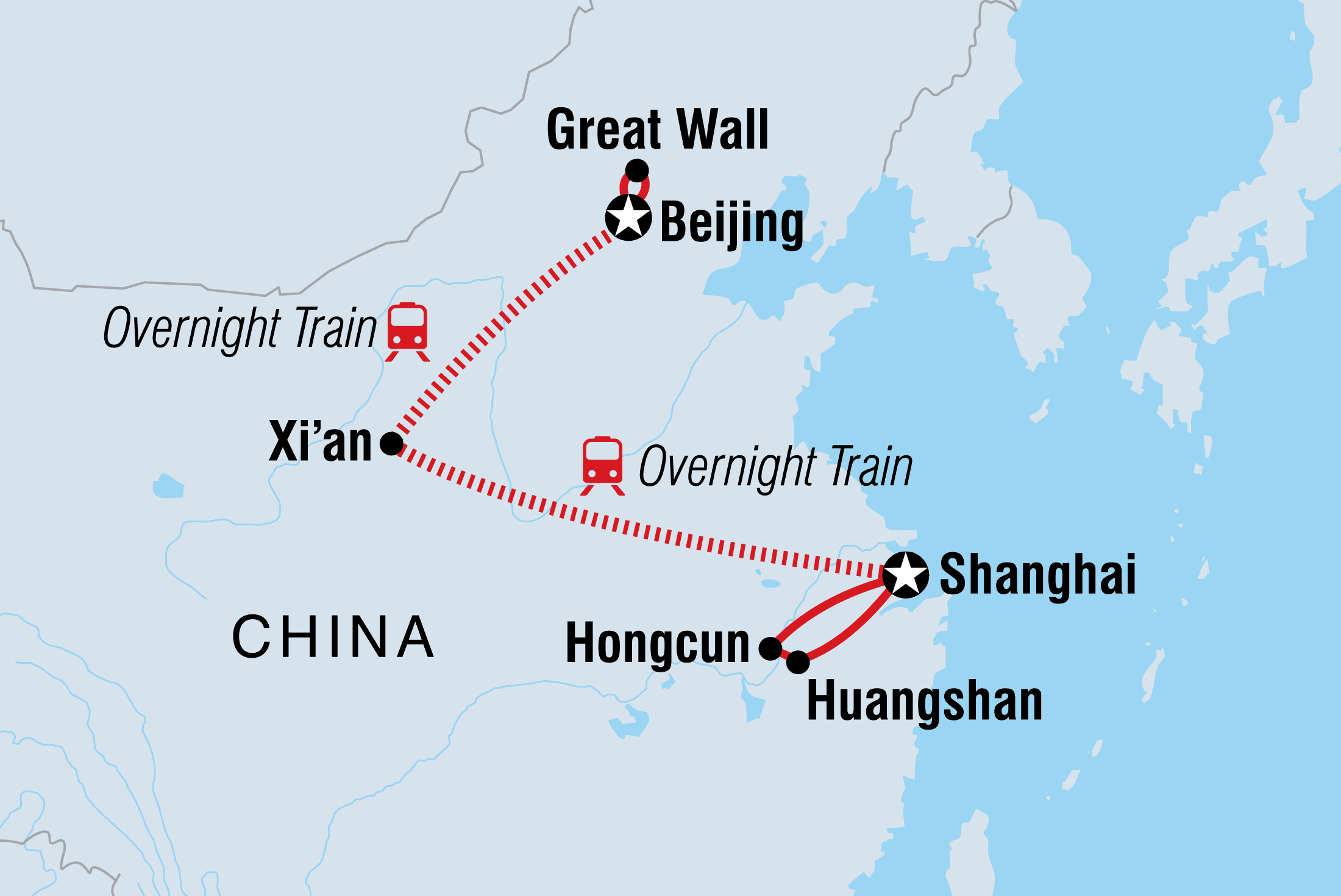
Discover the breathtaking countryside and rich cultural history of China's north on this 12-day trip bookended by the bright city lights of the country’s biggest hubs. From the dizzying heights of Huangshan, the Great Wall and waterfront Shanghai to the underground pits that hold thousands of Terracotta Warriors, this trip explores the diversity and significance of China. Go beyond the tourist trail, immersing yourself in the local ways of life, with hand-picked experiences to choose from and curated stays in small village guesthouses along the way. Northern China is a feast for the senses, especially your appetite.
- China is a land of contrasts. From soaking up the bright city lights of Shanghai’s waterfront to exploring the unearthed Terracotta Warriors outside of Xi’an, you’ll get to see it all for yourself!
- Spend two nights at the base of the Great Wall in a locally run guesthouse, and follow in the footsteps of soldiers from hundreds of years ago when you trek the lesser-visited Gubeikou to Jinshanling section.
- This adventure offers plenty of opportunity to get active among the wonders of China. Explore city laneways on walking tours, climb the steps of the Yellow Mountain, trek the Great Wall and cycle countryside lanes in Hongcun.
- Two overnight trains means you'll maximise your time in each destination, get to know your fellow travellers over a game of mahjong, and have a real sense of the vast size of the country.
- We’re all about authentic experiences, so go local every step of the way with an experienced local leader, public transport, and family-run guesthouses and lodgings wherever possible.
- HOTEL ROOMS:
- Some travellers have reported that hotels/accommodation in this region tend to have harder bed mattresses than those they are used to at home. You may like to request an extra quilt or bedding from the hotels if you find this an issue.
- SMOKING ROOMS:
- Smoking is prevalent in China and hotels generally do not offer specific non-smoking rooms. Larger hotels with central air conditioning will sometimes transport the smell of smoke between rooms. While we ask our hotels to ensure our rooms are well cleaned and ventilated well before occupation in some cases this is not possible, and the smell of smoke may linger. Please speak to your leader about the possibility of changing rooms if you encounter this.
- WIFI:
- WiFi is often available in hotel reception areas and sometimes in rooms. Your leader will be able to advise on the best places to get connected.
- GUESTHOUSES
- In smaller, rural locations in China we may stay in guesthouses, which are mostly small family run establishments. Facilities are basic compared to hotels and towels may not be provided. Please note that on occasion the group may be accommodated in separate guest houses within walking distance of each other.
- HARD SLEEPER TRAINS CHINA:
- We use hard sleeper class trains for most of our overnight train journeys in China unless otherwise specified. These are not as rough as they sound - compartments are open-plan, clean, with padded berths (6 to a compartment) and sheets, a blanket/quilt & pillow provided. We recommend bringing your own sleeping sheet if you are concerned about the quality/cleanliness of sheets being not what you are used to. Basic bathroom facilities with toilets and washbasins are situated at the end of each carriage. As toilet paper isn't always available, it's best to bring an emergency supply.Most trains have a dining carriage where meals or snacks are available and all have hot water in each carriage for tea and instant noodles.
- While we aim to have our groups staying together there may be times where due to ticket availability the group will be staying in different compartments and carriages. The compartments are not segregated by gender and you may share with locals or other travelers instead of your own group members. Your leader will help you settle in once on board and it’s a great opportunity to experience first-hand how Chinese travel in the country. While railway services are rapidly being modernised in China, some train journeys on less frequented routes may use older rolling stock and the carriages of a more basic standard.